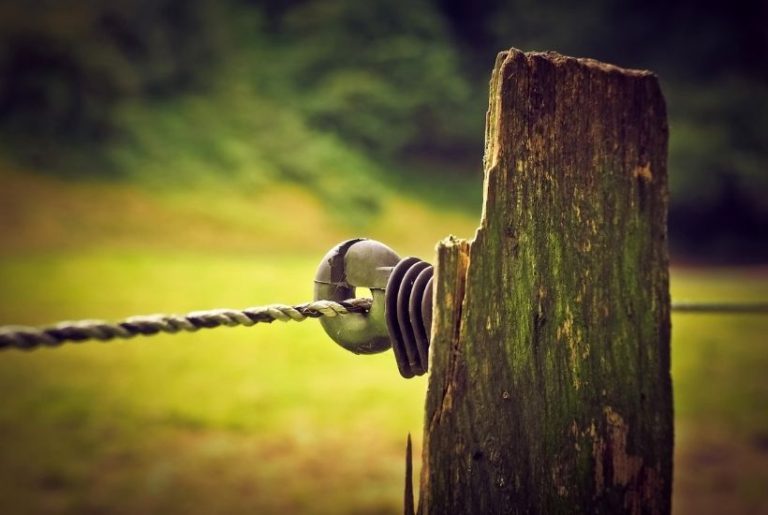The Secret to Your Well-Run Homeschool
This post may contain affiliate links. For more information, please read my disclosure policy.
Have you thought about why you homeschool your child? As for me, I’m not homeschooling to get my kids into Harvard or Yale. Don’t get me wrong, I’m thrilled every time I hear of another homeschooled child receiving a full-ride scholarship to an ivy-league school.
Do you know the secret to a well-run homeschool?
But that’s not why I homeschool my kids.
In order to have a successful homeschool, you have to know why you’re homeschooling. Otherwise, you’re just going to sabotage yourself.
Why Are You Homeschooling Your Kids
This is why we’re spending day 2 of the 31 Days to a Well-Run Homeschool series focusing on why we homeschool.
Because if you’re homeschooling to give your children the freedom to be children and to have time to explore but choose to fill every moment with drill, memorization, and activities designed to create the perfect child, no one will be happy. In fact, I think it’s safe to say everyone will be miserable.
You won’t be meeting your goals for homeschooling.
On the other hand, if your ultimate goal in homeschooling is to get your children into Harvard with a full-ride scholarship, you may want to include more academics and well-chosen activities for your homeschool.
You will be meeting your goals for homeschooling.
That’s why we begin by discussing why you’re homeschooling in the first place.
Think about it for a second.
- Are you homeschooling because the public schools weren’t a good fit? Do you plan to put your kids back into the schools when your children are older? If so you’re going to want to stay current on what your children will be expected to know at each grade level.
- Perhaps you’re homeschooling because you want your children to enjoy the freedom of following their interests.
- You may want to give your children the gift of a good education and send them off to school better educated than some professors.
- You may wish to focus on your children’s characters and religious education.
- Your children may have opportunities in the arts, sports, dance, or drama that they wouldn’t be able to enjoy while enrolled in school. You homeschool to allow your children the chance to explore their dreams now before they grow up.
- You may be homeschooling so your children are accepted into Harvard with a full-ride scholarship.
So why are you homeschooling?
It’s important that you know why you’re homeschooling. You can’t create a well-run homeschool for your family without this knowledge.
After all, if your child is dreaming of being the next Simone Biles and spends hours at the gym, planning a 10 hour homeschool day isn’t wise.
Your homeschool has to fit you and your family. It needs to be one that brings delight into the family. Makes you follow rabbit trails with wonder and curiosity.
What Do You Want Your Kids to Get from Homeschooling?
Another way to look at why you’re homeschooling is what you want your children to get from the homeschool.
- Do you want them to receive an excellent, personalized education?
- Do you want them to have time to explore the world and learn only what they need to know?
- When your child is 18 and heading out the door, where are they going and what have they done to prepare for this opportunity?
Spend a few minutes today exploring why you’re homeschooling and what you want your children to receive from this experience.
The secret to a successful homeschool involves answering the question, “Why homeschool your child?”
As for myself, I’m homeschooling because I want my children to have both an excellent classical education and the time to explore their interests. Homeschooling allows me to balance the two desires.
Let me know in the comment why you homeschool your children and what you want your kids to receive from your homeschool. After all, there’s no right or wrong answer!










Our reason to homeschool is two-fold. The went to school until my oldest finished 4th grade (well, the equivalent to your 4th grade that is) and the youngest finished 2nd grade. We took them out of school because our oldest was being bullied and the school wasn’t doing anything about it. Around that time we found out our youngest has dyspraxia and nothing he was learning in school was being memorized. So, we had to start from scratch with math,for example.
We also have the “fun” part that homeschooled kids here in Belgium need to pass some tests at certain times . At the end of the schoolyear where they would normally be in 6th grade, plus before they are sixteen they need to pass every test for every subject that they would normally have in 7th and 8th grade. So, we can’t really go too far of the normal schedule, but we do our best to both keep in line with what the schools are teaching and what the kids are interested in. It’s a fine line to walk, but we make it work, for now.
That is a fine line to walk when homeschooling, and it does change the options that you’re able to consider as you homeschool your children. Thanks for sharing, Leslie! 🙂
Awesome post and great questions to ask yourself. I think sometimes we get so stuck in the moments homeschooling struggles we forget to think long term.
Thanks, Erin! It’s too easy to get caught up in the moment, especially when you have a child crying over math and the toddler’s tearing apart the house. The ‘why’ can keep us going when homeschooling gets tough. 🙂
I decided to Home school my son of the first time this year. He is in first grade and I wanted him to be able to be a kid (which I dont think the school does anymore) and be able to learn things he is interested in. Its only been a few months and feels like a disaster. We fight all the time anx it isn’t any fun for either of us. It’s too ridged and I feel frustrated when he doesn’t want to do school. It shouldn’t even take us that long at 6 years old. It’s just he doesn’t like the hard subjects like math and reading. He is doing good just always a fight daily.
Kathy, the first year of homeschooling is hard. It takes time to find a good working flow. I do have a few suggestions for you.
1. Your son has a habit of fighting. My kids have done the same thing in the past. For me the best thing to do was to back off. It seems like you’re letting your child win, but what you’re actually doing is building the habit of getting your work done in a timely manner. When I backed off, we’d drop down to something ridiculous such as 1 math problem or read 1 sentence. It needed to be so easy that it wasn’t worth putting up a fight when they finish it in 30 seconds. From there I’d gradually build up. In math, add a second problem the next week. Once he’s doing two problems quickly, add a third problem. It takes a while to retrain the kids, but it’s worth it.
2. Little kids don’t like to think hard, but they do love to show off what they know. Sometimes resistance happens because the work is getting too hard. I like to keep my 1st graders working at 75% review and 25% new. You can also try backing up and reviewing old material. It might be he doesn’t fully understand or remember the concepts you covered a few weeks ago. Back up to a point he’s happy and give it another go. I found my little ones would pick up steam after we went back to recover old material.
3. Bribing works. Add something fun to the day immediately after schoolwork is completed. For instance my kids get computer time. The kids don’t fight since they know it will postpone their game time.
Hopefully one of these tips will help!
Love this advice! I think i will print it and keep it close by, seriously, Thank you!
My pleasure! 🙂
I decided to start homeschooling my youngest boys this year. One is disabled and spent the first 7 weeks of school hospitalized and has many months of post surgical recovery in store, so.. homeschool made the most sense. He is in 3rd grade. My youngest son was experiencing a lot of negativity from his teachers and administration because he moved around too much or liked to draw pictures instead of sit still… he spent a lot of time in the office and was even refused bathroom use which resulted in a humiliating accident. He is a first grader. So, I thought I would have a great amount of luck homeschooling them and giving them MORE than the classroom public education can.. through experience and real world interactions. It’s only been a couple of months since I started and I have not done well getting organized or building an appropriate curriculum for the boys. I am honestly not sure where to start or how to TEACH them. I am always reading and researching but don’t know what to actually use when creating their curriculum.
Erin, the best place to begin is with the 3-R’s. Find yourself a good math curriculum. I use Saxon Math and love it. Mammoth Math is also excellent, as is Singapore Math and Right Start. Many of my friends have enjoyed Teaching Textbooks as well. Concentrate on keeping your boys moving in math.
At the same time, spend time each day reading aloud to your sons and having them read themselves. If your 1st grader isn’t reading, I recommend Phonics Pathways or Ordinary Parents’ Guide to Teaching Reading. Otherwise, encourage the boys to spend plenty of time enjoying good books. My 1st grader usually prefer to read picture books for quite a while before moving to chapter books in 2nd or 3rd grade. Picture books are designed to be read aloud and use more difficult words than early chapter books. So don’t worry if it takes a while before your youngest son moves to chapter books.
Have your children narrate, tell you about, what they’ve read. Encourage them to give details without just going on and on and on. At the same time pick sentences or paragraphs for your sons to copy. This copy work will internalize grammar, spelling, and punctuation. Later, once math is going well, you can look for a language arts program for your sons.
If this is all you do for school at this time, you’ll keep your sons moving forward with reading, writing, and math.
The Story of the World is an excellent read aloud for history and geography.
Once you have math going smoothly, look into a language arts program for your sons. Use a slow and steady approach. The first year or two of homeschooling is always the hardest. You’re trying to build an education from scratch and figure out what works best for your family. 🙂
I’m having a difficult first year, I can’t seem to get our homeschool off the ground. I have so many ideas and things I want to do that they’re all pulling me in every direction, not to mention that I have a two and four year along with my six year old who is the one I’m homeschooling,
Devona, my thought is that you need to start small. It’s easier to slowly add one subject at a time than jump into everything. Start by ensuring your 6yo is learning to read. Once phonics or reading is going well, by well I mean consistently, add in math then handwriting. Concentrate on building a slow habit of homeschooling everyday, even if it’s simply a few minutes of reading, writing, and math.
As time goes by, add in other subjects such as history, geography, science, art, and music. Many times you’ll find yourself naturally adding in these subjects as you live your life. Read alouds don’t just need to be literature. You can also read about history, geography, or science. Encourage your children to sing and listen to the radio. Pull out art projects for a rainy afternoon.
The goal is to start slowly and build a solid foundation for your homeschool. 🙂
I home-school my oldest son because the schools don’t seem to be able to reach him. He is active, but he has no learning disabilities. We tried everything with the school system but nothing worked. They just didn’t seem to care if he wasn’t reading at 8 years old, or was still struggling at everything.
This year, we home-schooled all 3 of them, grades 3, 1, and k. I couldn’t give my oldest all the benefits of home-school if I was also in the public system. For example, we couldn’t participate in the out of town field trips because we had to be home for the little kids.
It has been hard. I am struggling to find a balance between each kid and the house. My first grander and kindergartner are flying through their work and my 3rd grader is struggling still. I realize he has more work because of his grade level, but he doesn’t understand that.
I can see that they are learning and that is what matters the most to me. My oldest has started reading better and actually picks up books now.
For someone who knows they want to homeschool their kids in the future what would you recommend for prepareing. My first is only 4 months old , so we have awhile. However, i love planning and preparing.
My recommendation right now is to read and study homeschooling. Look into the various methods, study, and learn.
At the same time you can set up various homeschooling routines as your baby grows. For instance bedtime stories at night and a read aloud time during the day. Find some wonderful picture books to read to your baby. Keep board books available for your baby to look at. It won’t be long before your child is crawling around the house. 🙂 Perhaps you can start a weekly routine of taking your child on a nature walk or field trip. Have an afternoon devoted to art projects or science experiments. Many of these little ‘extras’ can be added gradually into your weekly routine as your child grows.
Those are my two best suggestions. Read, study, and learn as much about homeschooling now. And begin folding the age appropriate activities into your weekly schedule.
Congratulations on your baby! 🙂
I decided to homeschool my oldest daughter when she was about 9 months old. I was a single mom then, living on welfare and by the time she was two years old I had to be attending college full time. I met my husband when she was three years old and fortunately he supported me in my decision to homeschool our children. My oldest is now seven years old, my how the time flies!! We now have twin girls almost two years old and I am having such a hard time trying to get organized, stay on schedule and have Anouilh time to dedicate to my oldest and her studies.
I enrolled my seven year old in that online public school, K-12, and I do not like it! First of all I do not like having to report my child’s progress to someone else on such a regular basis, every 3 weeks I have to submit work samples and I have fallen behind. Secondly, I do not like the “common core” curriculum which is being taught. Finally, I don’t like the amount of time my daughter has to spend in front of a computer “learning”!
So, for the first time, I completed and filed a private school affidavit with the state, named our school “Classical Minds Academy” repurchased the book “The Well Trained Mind” by Susan Bauer and Jessie Wise, trying to focus on the parts where I am getting stuck like record keeping and choosing curriculum but it just seems so overwhelming! Not to mention time consuming and expensive….
I am interested in classical education but it seems a little too rigorous for my liking and I am now leaning towards a Charlotte Mason approach of short lessons, lots of play and time for children to pursue their own interests on their own time while keeping a focus on history and our foreign language of choice will be Latin, as in the classical model. But then I took this online quiz that said I should do Unschooling!!??? That was a shocker to me because I don’t believe in completely child led education, there needs to be structure, purpose and an end goal more finite than “my children learned whatever they wanted, whenever they wanted”, at least that is my current understanding of Unschooling…. maybe I’m wrong…? One thing is for sure, I am lost and overwhelmed!
I would also love to find some record keeping printables that will kinda make it clear exactly what needs to be recorded and how often….
The Charlotte Mason method and modern classical education are not that different is scope. Here’s a link to Susan Wise Bauer discussing Charlotte Mason. Many families combine the two methods into an approach which works best for them. I don’t know much about unschooling, as it’s never attracted me. 🙂
My suggestion is to take a deep breath and relax. Start with one subject at a time. At this point you could probably use a curriculum for math. Don’t worry about anything else, just find a good math program which fits your family. Encourage your daughter to spend time reading everyday as well. Build your homeschool one subject at a time. If you’d like a guide, try my free ebook: Building Your Perfect Homeschool in Just 13 Weeks. Remember your daughter is young. Both of you will benefit from gradually building a classical or Charlotte Mason homeschool.
As far as record keeping, it really depends upon your state. Some states require attendance, others a portfolio, and others have no requirements. The easiest way to start would be to keep a spiral notebook. Each day use a new page and date it at the top. Write down anything educational you see your daughter doing. If she’s reading, writing it down! If she’s writing a letter, writing it down! If she’s playing Monopoly, write it down! As far as myself, I simply create portfolios. I use a 3-ring binder to hold math lessons, lists of books read, history notebooking pages, spelling lessons, science worksheets, etc. I don’t worry about more detailed record keeping until high school. 🙂
Take a deep breath, Michaela. You can do this!
After a very rocky year at a private school for Kindergarten, we have decided to pull my 6 year old (HFA) son out. I feel as though his needs were not being met both academically or socially. As we are transitioning over the next few weeks we are just going to be working out of a workbook from Costco. In my head I think I know what is going to work best for him, but then I start exploring other options and get a little overwhelmed. I’m also trying to plan how things will go when our new baby is born. At that point I’ll have a 6 year old, a 3 year old and a newborn. We do lots of reading and exploring and I’m on a few wait lists for local co-ops.
Reading and exploring is perfect for young kids! My suggestion is to concentrate on finding a good phonics program, a math curriculum you love (I use Saxon math), and handwriting. After that exploring and a pile of good books from the library is all you need until your children are a few years older. 🙂
My husband and myself decided to homeschool our children because they way the world is going downhill fast. We didn’t want our children exposed to the toxic school environments we were exposed to. Both of our parents worked full time and sent us off, and watched us continue to fail as students, but never intervened. We love our children and want them to have good virtues and character, we want them to explore and love the earth we live on. We want them to learn about Jehovah (Gods name as found in ancient bible manuscripts) and why that matters. We want them to know we’re there to support them, and that we can even learn together. We want to be able to support our younger boy who can’t sit still at all, to be able to get a good education. I’ve heard time and again how that type of learner gets pigeon holed in school systems. I want to learn more complete patience too.
I have a six year old, four year old, one year old, and I’m pregnant. 😱 My oldest loves learning so I haven’t had much fighting on my hands, my problem comes from the two fighting with/conspiring with each other. But we’re working it out slow and steady… I’m using Easy Peasy All in One Online (FREE) Homeschool for math and english (I supplement a lot of my own OFFLINE activities, but I just make sure I do the day lesson, it’s been two months and my son is starting to read!). It’s working well for us. I make my own science, and history curriculum. I did suffer my first burnout and realized I need to take monthly week breaks.
Congratulations, Brittani! Easy Peasy All in One Homeschool sounds like a wonderful fit for your family! Regular weeks off make a big difference in preventing homeschool burnout. 🙂
I”m excited to go through these blog posts and reassess some things. Thanks for doing this! We’ve been home schooling for 10+ years now and a lot has changed since we started. But… why do we homeschool… I homeschool because I want to be fully available to my children as they face new ideas and challenges. My husband says, “… because we want to prepare them for life as adults and we are better able to do that with them learning at home than we would be if we were trying to supplement the public school system’s version of education.”
My pleasure, Robin! Homeschooling really does help us be fully available to our kids as they face new ideas and challenges. And how better to prepare them for adult life than modeling adult life at home on a daily basis. 🙂
Hey there! First, can I say I love your site! I’ve found so many useful tips here.
As for your question, I have been homeschooling my 3 yr old and 1 yr old since last year. After originally trying to recreate school at home which only met resistance, I adopted a much more child led approach (I think it would probably qualify as relaxed homeschooling). Basically, my kids get to play, but if they bring me a book to read we read it, if they’re curious about something we look it up, and at various points I ask them “what do you want to learn about today” and give them some options. (of course, if they pick something different, as long as it’s vaguely educational, it’s ok with me). My goals are both an excellent education and training my children to make their own (good) decisions in learning and life. In my experience, I’ve learned that intrinsic interest just isn’t there if someone else forces you to learn a particular subject :/
I don’t know if we’ll get to homeschool “for real” once they hit public school age as I don’t know if we can afford it, but for now it’s fun (and it’s working). I hope it’s setting them up to have a good attitude for the rest of their life 🙂
I pulled my year 8 daughter out of school because of bullying. We have kept up with English language and maths and are adding English Literature and Biology. She wants to be a Karate sensei, I am trying to get her to broaden that out to fitness trainer. She has a brown belt in karate and is already a sempai, (assistant teacher) but she needs a broader focus.
Your advice is awesome.
I started homeschooling because we moved into an area with a failing school. However, prior to moving, we had become very frustrated and disappointed in the public school system. Common Core was a disaster. My child was going to school with other children that had no morals or values even at a very young age. I decided that even though it was going to be tough homeschooling with my 2 and 1 year olds in tow, I was going to do it anyway!! I have pondered my answer to your question for a long time now. What is my “why”? I think I can honestly say that my why is because the failing school systems are not good enough for my child. Education is very important to me. But another BIG reason is because I wanted learning to be FUN!! Public schools now days have sucked all fun out of learning. I also wanted to instill good, Christian morals and values in my child. So now instead of not being sure why I was homeschooling, I just discovered not only 1 reason but 3 very important reasons. Thank you for asking this question. We have been homeschooling for 2 months now and I would be lying if I said it was easy. I never feel like I am doing enough but I have come to terms with the fact that the first year of homeschooling is alot of trial and error and it will take a little while to work out all of the kinks.
That’s awesome, Brooke! I am so thrilled you found a detailed answer to why you’re homeschooling. Knowing why you’re homeschooling not only helps when you hit the rough spots, but it also helps to guide your curriculum choices through the years. Welcome to homeschooling! 🙂
We have been homeschooling for a little over a year. I looked at the options in our school district and they weren’t that good. I also looked into the curriculums that they are teaching in those schools and I didn’t agree with it. We have our good days, most of them are still bad because he is a strong willed child and I’m still learning how to work with and discipline him correctly. I don’t want to give up though, I have been reading some of the teachings of Charlotte Mason and it has given me more courage. So I guess the main reason I want him to have much more relaxed childhood, where learning doesn’t take 6 hours a day. He can do his learning in a couple of hours tops (he’s 6) and then he is free to explore nature and creature all he wants to.
I am a grandmother homeschooling two of my grandchildren. They came for a couple weeks visit and six months later are still here with no idea if or when they will go home. They missed 2 years of school. I did not want them labeled. So we decided to homeschool them. They are 8 and 11 years. Overall our year, our first year, is going well. We still have some schedule glitches to work out especially since I also have a son in his senior year in public school, and my husband works shift rotations, one week on days, then nights, then graves. We found a curriculum that keeps the children interested and I also added the Prairie Primer as something really relaxed and fun.
We also have a few behavioral issues that we are working on. When these show up we like to take nature hikes to work off steam. I want them to enjoy learning. If they want to learn a craft we take time to learn, if they want to explore a topic more in depth we take the time to do that. I do my best to allow them to follow their interests. I am also trying to be on top of the curriculum in order to ensure that if they go home and are put back in public school they will be at or above their grade level.
It sounds like you’re doing a wonderful job homeschooling your grandkids, Sherri! 🙂
Thank you! I don’t have the cleanest house which is a struggle since I have OCD however the kids are only young once the mess will always need cleaning. We have a small home so organization is a must! Although it doesn’t always look organized with science experiments and craft projects in various stages of completion. We will get there maybe one day lol
.